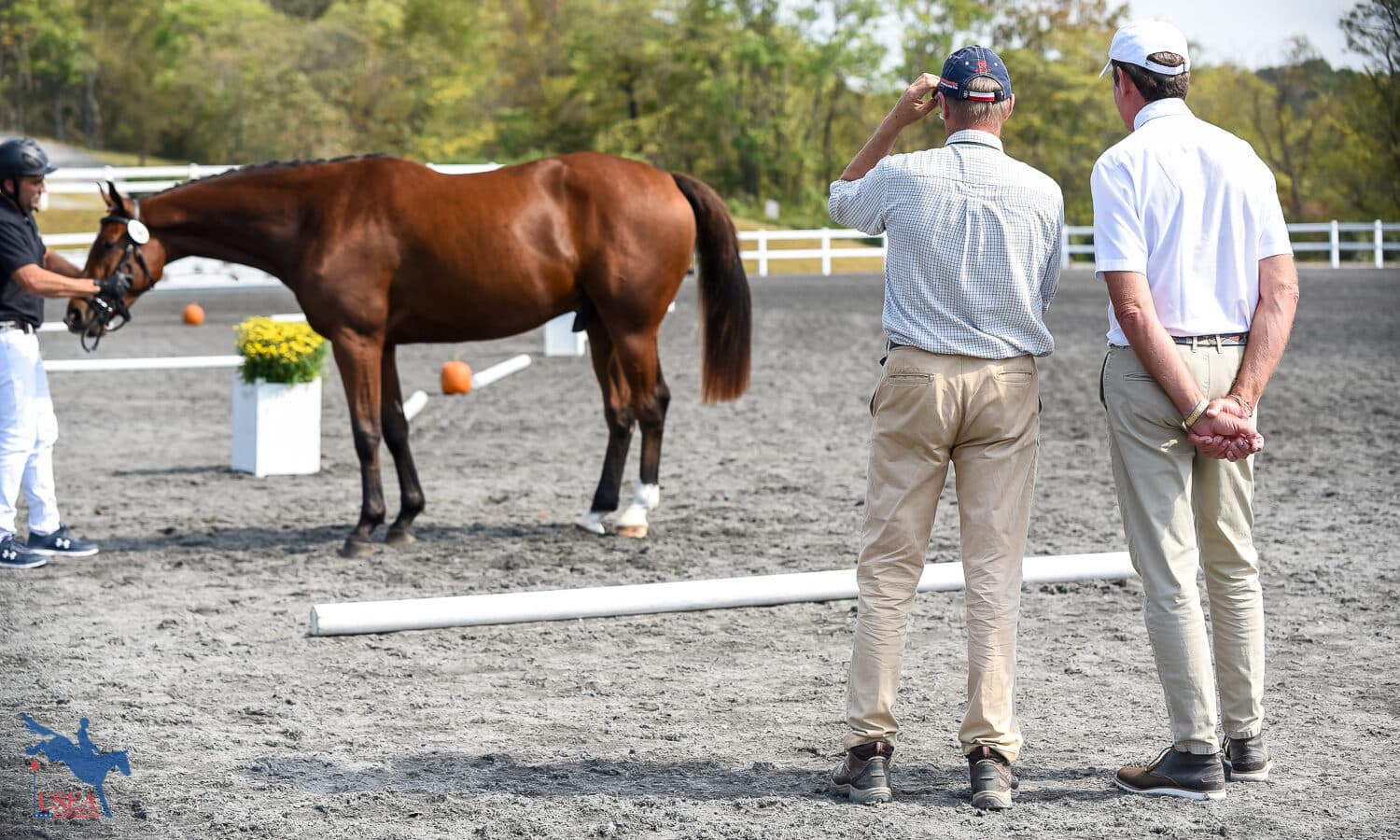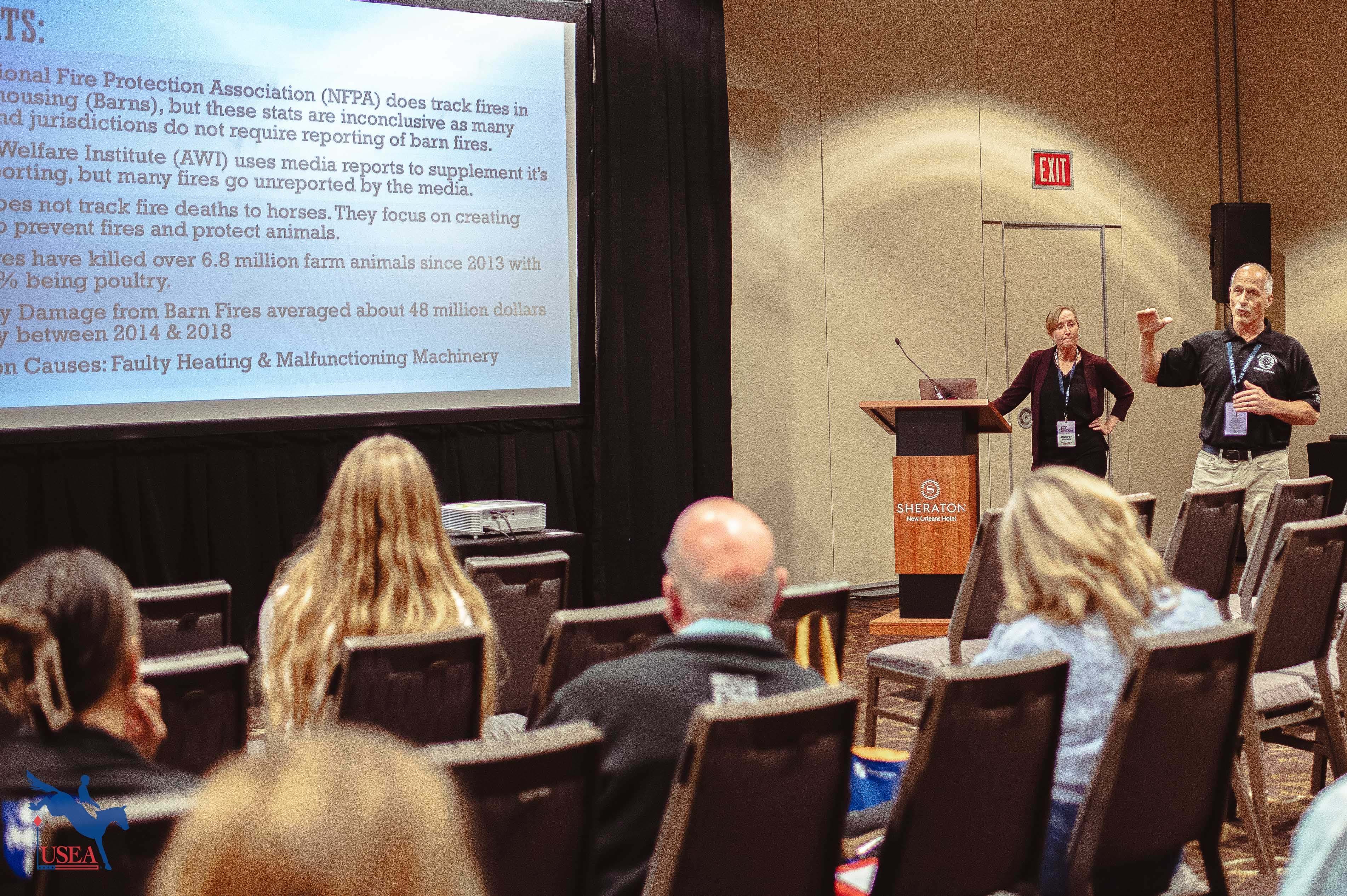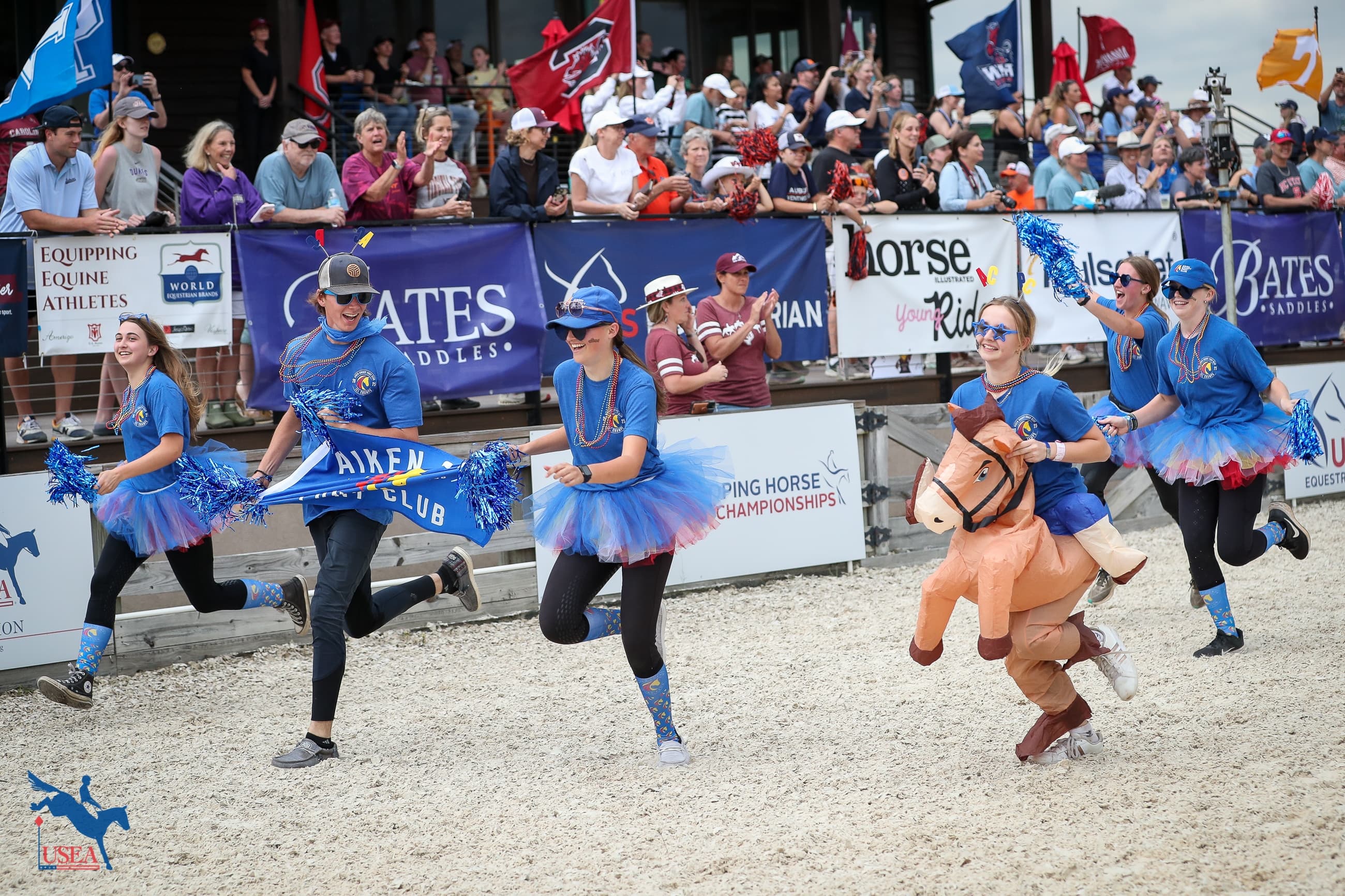VIDEO: Future Event Horse Judging

In lieu of the USEA Educational Symposium, which could not be held this year due to COVID-19, this week we are bringing you educational content from the USEA Instructors' Certification Program, the USEA Young Event Horse program, and the USEA Future Event Horse program.
Want to learn the difference between a ‘flashy mover’ and ‘correct mover’? Or which conformation flaws inhibit an event horse’s performance? USEA Future Event Horse (FEH) Committee Co-Chairs Robin Walker and Susan Graham White along with 2019 USEA FEH Championship judges Chris Ryan and Peter Gray share a look into FEH judging in this educational video.
These four experts thoroughly discuss what makes a good event horse. For conformation, they discuss what judges should look for, what good conformation looks like, and what conformation flaws could hinder an event horse’s performance. For assessment of gaits, Gray explains the top characteristics that he looks for, Graham White explains correct movement, and Ryan explains how conformation can affect movement. Graham White and Walker also go through a step-by-step explanation of how to judge a FEH competition.
Two videos on the handling of Future Event Horses for competition are also available here.
About the USEA Future Event Horse Program
The USEA introduced the Future Event Horse Program in 2007 in response to the popularity of the already established USEA Young Event Horse Program. Where the YEH program assesses 4- and 5-year-old prospective event horses based on their performance, the FEH program evaluates yearlings, 2-year-olds, 3-year-olds, and 4-year-olds for their potential for the sport based on conformation and type. Yearlings, 2-year-olds, and 3-year-olds are presented in-hand while 4-year-olds are presented under saddle at the walk, trot, and canter before being stripped of their tack and evaluated on their conformation. Divisions are separated by year and gender. At the Championships, 3-year-olds and 4-year-olds are also required to demonstrate their potential over fences in an additional free-jump division. Click here to learn more about the Future Event Horse Program.
The USEA would like to thank Bates Saddles, Parker Equine Insurance, SmartPak, Standlee Hay Company, and Etalon Diagnostics, for sponsoring the Future Event Horse Program.














